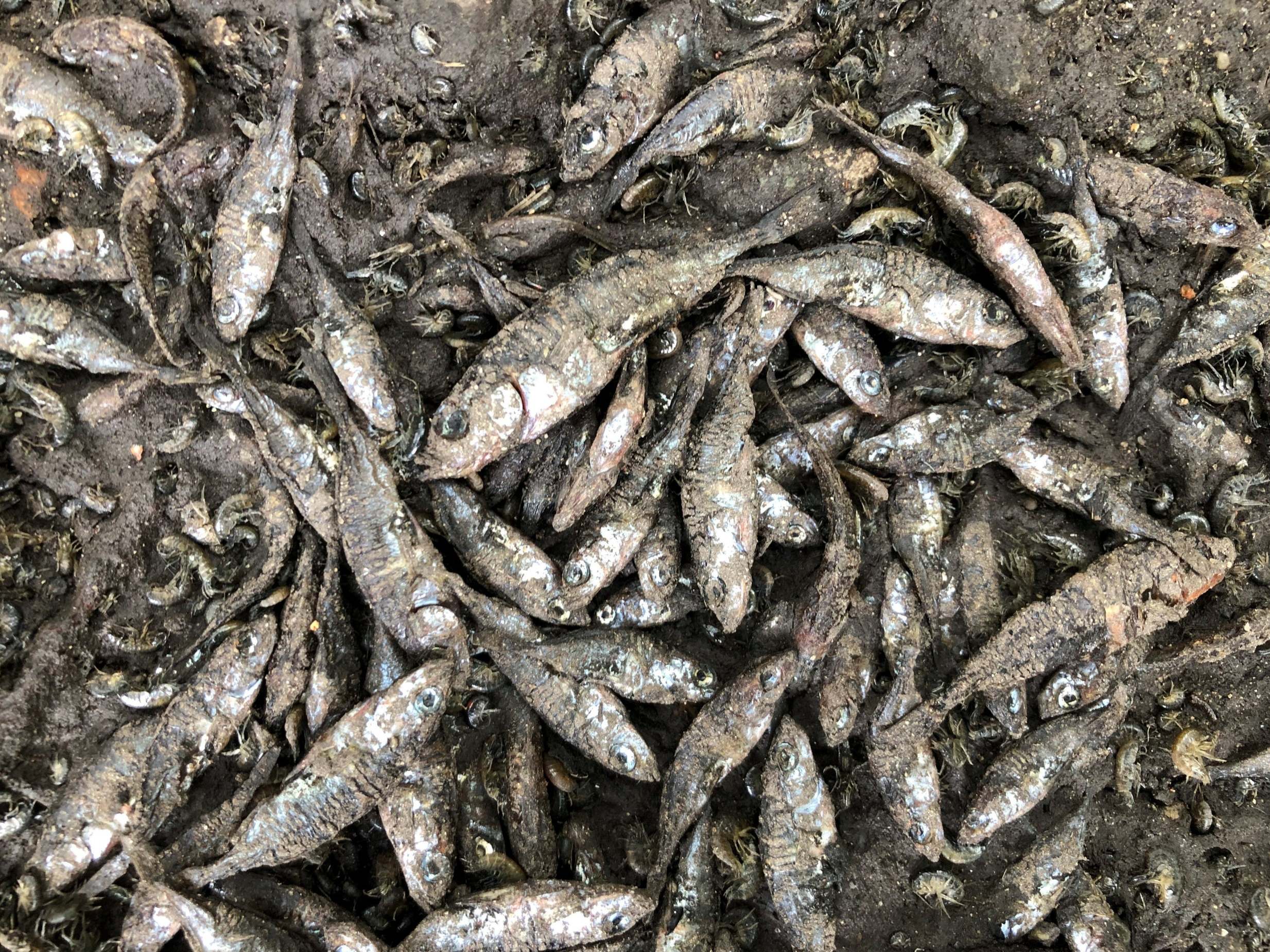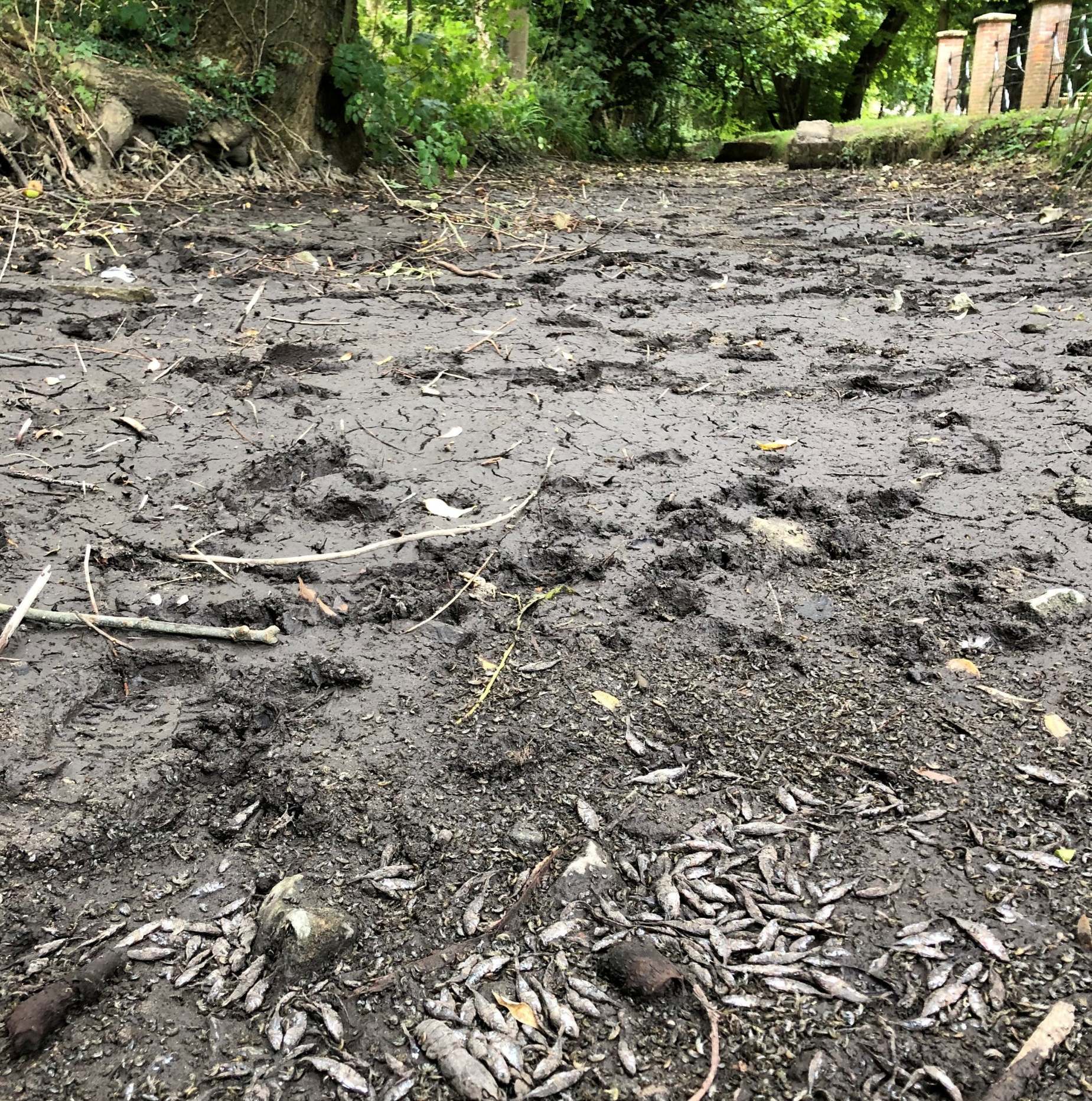‘It’s unusual’: Hundreds of fish found dead after UK river dries up
Rare chalk streams in south of UK under growing pressure, campaigners warn

Your support helps us to tell the story
From reproductive rights to climate change to Big Tech, The Independent is on the ground when the story is developing. Whether it's investigating the financials of Elon Musk's pro-Trump PAC or producing our latest documentary, 'The A Word', which shines a light on the American women fighting for reproductive rights, we know how important it is to parse out the facts from the messaging.
At such a critical moment in US history, we need reporters on the ground. Your donation allows us to keep sending journalists to speak to both sides of the story.
The Independent is trusted by Americans across the entire political spectrum. And unlike many other quality news outlets, we choose not to lock Americans out of our reporting and analysis with paywalls. We believe quality journalism should be available to everyone, paid for by those who can afford it.
Your support makes all the difference.A picturesque small river in the Chilterns has dried up, leaving hundreds of fish and shrimp dead, with experts and local action groups blaming climate change for reduced water levels.
Alarming photographs show the waterless muddy bottom of the River Misbourne in Buckinghamshire strewn with decomposing corpses.
The river is one of 260 chalk streams in the world, nine of which are in the Chilterns – a designated Area of Outstanding Natural Beauty. They are notable for being very clear, and supporting a large diversity of wildlife.
Conservationists at the Chiltern Chalk Streams Project have called for a drought to be declared to prevent more creatures from suffering the same fate.
Project officer Allen Beechey said: “Our chalk streams are in crisis and facing a fight for survival.
“A combination of climate change and over-abstraction to supply our ever-rising demand for water has left chalk streams like the River Misbourne in a dire state.”
Bob Olden, founder of the Misbourne River Action group, told The Independent: “The Misbourne is dry for an exceptional amount of its length at the moment.”
The same thing happened in 2017, he said, though not to the same extent.
“It’s unusual, and possibly getting to be more frequent.”
He said that a generation ago, several sections of the river were regularly used as swimming spots, but also added that low water levels had been a problem centuries ago.
“Mill owners in 1774 were complaining it had dried up on one occasion,” he said. “But we also have plenty of records of floods. The river couldn’t possibly sustain mills today.
“There’s an indication climate change is making things worse.
“Flash floods are no good. We need the water to settle down through the soil to reach the aquifer. Lots of rain doesn’t necessarily help. We really need the rain to come during the winter recharge period rather than the summer because otherwise the grass and the trees mop it all up.”
He also said since the 1990s water abstraction had decreased substantially, indicating the river could be getting drier despite less water being taken from it.
Calling for a long-term water strategy for the southeast, Mr Olden said the threat of the river’s disappearance represented the “loss of something nice to have. It’s the difference between a ditch that’s overgrown and full of Tesco trollies, or a nice stream full of fish.”

Conservationists have called for government action to avoid “irreparable damage” to Britain’s surviving chalk streams, and avoid taking any further water from them.
Mr Beechey said: “These rare rivers have suffered at the hands of abstraction, which has increased significantly ever since the end of the Second World War to supply water to an ever-growing population.
“Coupled with the impacts of climate change, many of the Chilterns’ chalk streams have become progressively smaller, shorter and have dried up more and more frequently since the 1990s.
“This trend is likely to continue and our chalk streams sacrificed unless something can be done to reduce the pressure they are under.”
He added: “With the government’s growth agenda set to significantly drive up overall demand for water in the southeast in future, there is an urgent need to for new strategic water resources to be developed in the south to meet this demand but also so damaging levels of abstraction can be brought to an end.”
An Environment Agency spokesperson said: “We had a member of staff visit sections of the Misbourne and we’re planning on attempting to relocate fish from the pools of water that remain in sections of the river today.”
The plight of the UK’s chalk streams has an unlikely hero in punk star Feargal Sharkey of The Undertones.
Sharkey has tweeted numerous photographs of the UK’s drying waterways, including the Misbourne, and criticised the government’s failure to take stronger action to address the problems.
Additional reporting by SWNS
Join our commenting forum
Join thought-provoking conversations, follow other Independent readers and see their replies
Comments